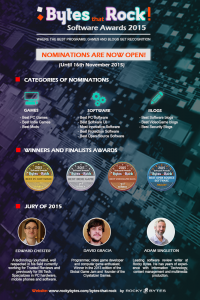Seventh International AAAI Conference on Weblogs and Social Media
Abstracts and papers from the Seventh International AAAI Conference on Weblogs and Social Media.
Much to consider:
Frontmatter: Six (6) entries.
Full Papers: Sixty-nine (69) entries.
Poster Papers: Eighteen (18) entries.
Demonstration Papers: Five (5) entries.
Computational Personality Recognition: Ten (10) entries.
Social Computing for Workforce 2.0: Seven (7) entries.
Social Media Visualization: Four (4) entries.
When the City Meets the Citizen: Nine (9) entries.
Be aware that the links for tutorials and workshops only give you the abstracts describing the tutorials and workshops.
There is the obligatory “blind men and the elephant” paper:
Blind Men and the Elephant: Detecting Evolving Groups in Social News
Abstract:
We propose an automated and unsupervised methodology for a novel summarization of group behavior based on content preference. We show that graph theoretical community evolution (based on similarity of user preference for content) is effective in indexing these dynamics. Combined with text analysis that targets automatically-identified representative content for each community, our method produces a novel multi-layered representation of evolving group behavior. We demonstrate this methodology in the context of political discourse on a social news site with data that spans more than four years and find coexisting political leanings over extended periods and a disruptive external event that lead to a significant reorganization of existing patterns. Finally, where there exists no ground truth, we propose a new evaluation approach by using entropy measures as evidence of coherence along the evolution path of these groups. This methodology is valuable to designers and managers of online forums in need of granular analytics of user activity, as well as to researchers in social and political sciences who wish to extend their inquiries to large-scale data available on the web.
It is a great paper but commits a common error when it notes:
Like the parable of Blind Men and the Elephant2, these techniques provide us with disjoint, specific pieces of information.
Yes, the parable is oft told to make a point about partial knowledge, but the careful observer will ask:
How are we different from the blind men trying to determine the nature of an elephant?
Aren’t we also blind men trying to determine the nature of blind men who are examining an elephant?
And so on?
Not that being blind men should keep us from having opinions, but it should may us wary of how deeply we are attached to them.
Not only are there elephants all the way down, there are blind men before, with (including ourselves) and around us.

